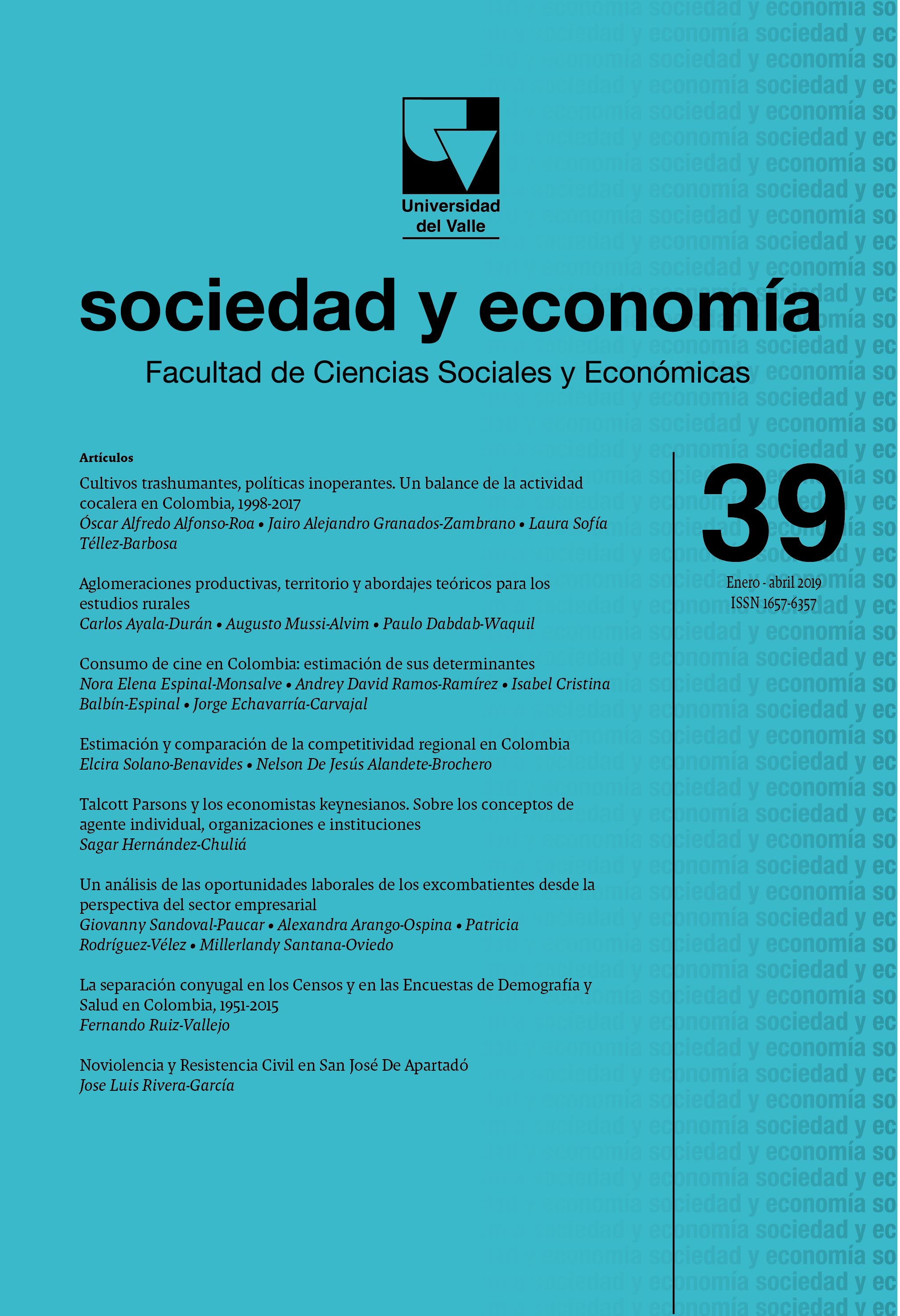Productive agglomerations, territory and theoretical approaches for rural studies
Keywords:
Economic Concentration, Rural Economics, Economic Theory, Regional EconomicsMain Article Content
Given the variety of theoretical lenses for the studies of productive agglomerations, the following paper has as a central objective to analyze and differentiate five widely used theoretical frameworks, namely: industrial districts, clusters, local productive systems, local productive arrangements and localized agrifood systems. For this purpose, the revision of pertinent theoretical literature is fundamentally used as a methodology, using five assessment criteria: theoretical / methodological rigor, use in the field, way of approaching the territory, explicit use in agricultural / agro-industrial issues and size of the analysis units . The reflection achieved indicates that industrial district shows great strength in terms of theoretical rigor, unlike approaches such as cluster or local productive arrangements. Similarly, industrial districts, together with localized agri-food systems, highlight the importance of the territory in their approaches. This last approach is especially useful for the study of agricultural and agroindustrial issues.
Downloads
Revista sociedad y economía editada por la Facultad de Ciencias Sociales y Económicas de la Universidad del Valle se encuentra bajo una Licencia Internacional Creative Commons Atribución - No comercial 4.0
Basada en una obra en http://sociedadyeconomia.univalle.edu.co

